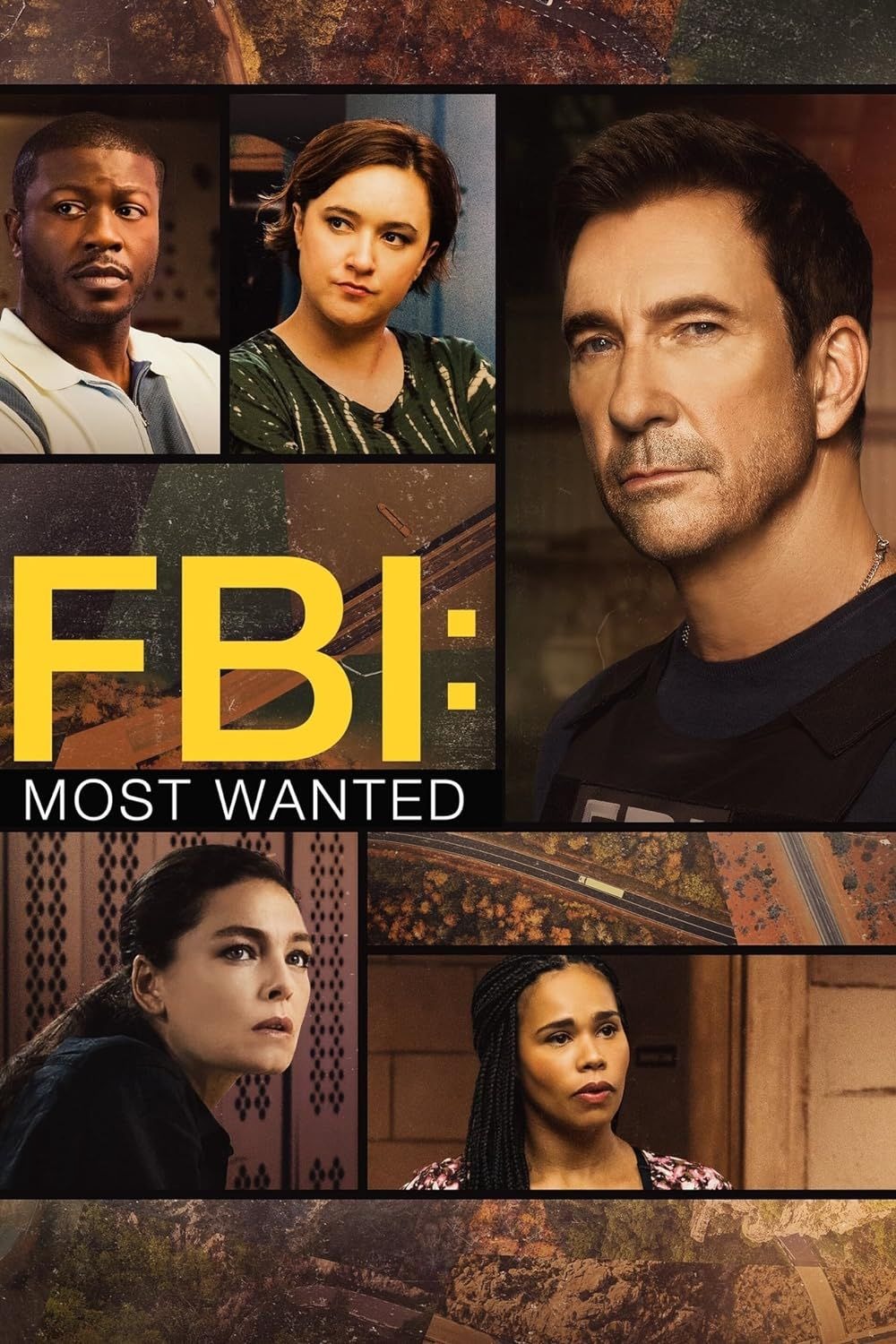
Introduction: A Finale That Hit Home for Millions
Have you ever watched a show finale and thought, Wow, that actually stuck the landing? That’s the feeling a lot of FBI: Most Wanted fans walked away with after the latest season wrapped up. But here’s the kicker: the real reason it was so deeply satisfying goes far beyond the characters or plot. It all stems from the showrunner’s own inspiration—and it’s surprisingly personal.
Let’s break down how this finale hit every emotional note perfectly, and why knowing the backstory behind it makes it even more powerful.
The Secret Ingredient: The Producer’s Real-Life Inspiration
Who Is Behind FBI: Most Wanted?
Before we dive into the finale itself, let’s talk about David Hudgins—the man steering the ship. He took over as showrunner and executive producer, and if the finale felt more emotionally grounded, it’s because he brought something deeply personal to the table.
Tragedy Turned Into Art
Hudgins has openly shared that his sister was tragically murdered in 2006. Her death inspired him to explore stories of justice, family, and grief—not just as a plot device, but as a healing journey. That pain and resilience have bled into the DNA of FBI: Most Wanted, especially in the finale.
Why the Finale Resonated So Deeply
A Payoff That Felt Earned
So many TV shows wrap up with cliffhangers or leave viewers frustrated. FBI: Most Wanted did the opposite. It gave closure. It circled back to character arcs that had been simmering all season. It didn’t pull a cheap stunt—it pulled heartstrings.
Emotional Layers Over Explosions
Sure, the show has action. But this time, the emotional stakes took center stage. We saw characters confront trauma, face their pasts, and make decisions that felt real—like something your own family might wrestle with.
The Power of Grounded Storytelling
The finale wasn’t about a flashy villain or twist for shock value. It was about how people move forward after tragedy. That hits different when you realize the person writing it knows that journey firsthand.
Character Arcs That Stuck the Landing
Remy Scott: A Man on a Mission
Dylan McDermott’s portrayal of Remy Scott became the emotional anchor this season. In the finale, we see a raw, vulnerable Remy—someone who isn’t just chasing criminals, but confronting demons from his own life.
Hana Gibson: The Moral Compass
Hana stepped up in a big way. Her storyline about balancing empathy with justice added richness to the narrative. And fans noticed—she’s not just a supporting character anymore; she’s a pillar.
Ray Cannon’s Transformation
Ray’s arc brought some of the season’s most human moments. His struggles with identity and loyalty gave the finale a pulse. Watching him evolve from the team’s rookie to a leader in his own right was a journey worth following.

Themes That Elevated the Storytelling
Justice vs. Vengeance
A core theme that took center stage was the blurred line between seeking justice and craving revenge. The show asked tough questions—and didn’t always give easy answers. That ambiguity made it real.
Family First—Even in a Procedural
At its core, the show isn’t just about tracking fugitives—it’s about chosen family. In the finale, every team member leaned on each other like a true unit. It gave the episode a heartbeat that action alone couldn’t provide.
Healing Is Not Linear
Perhaps the most poignant message? Healing isn’t a straight line. We saw that in every conversation, every breakdown, every hard decision. That nuance made the finale unforgettable.
How Real-Life Influence Makes Fiction More Powerful
True Emotion Isn’t Manufactured
Hudgins didn’t try to fake emotion—he pulled from something real. That authenticity bled into the performances, the script, and even the cinematography. And audiences felt it.
Art as a Form of Closure
For Hudgins, writing this finale wasn’t just about ending a season—it was about making peace with personal tragedy. In a way, the show became his therapy. And for viewers who’ve experienced loss, it became theirs too.
Critical Reception: A Finale That Critics Actually Loved
Why Critics Called It ‘Grounded and Gritty’
Reviews praised the finale for being “grounded and gritty”—not in terms of darkness, but depth. The emotional beats resonated with critics who were tired of predictable finales.
Audience Reactions: Raw and Real
On social media, fans shared how they cried, re-watched scenes, and felt connected in a way that’s rare for network procedurals. It wasn’t just a show—it was a mirror.
Behind-the-Scenes Insights
Writers’ Room Was Told to “Write From the Heart”
Hudgins encouraged the team to dig deep. The writers’ room wasn’t just focused on plot points—they focused on emotional truth. And it paid off.
Actors Were Given Room to Improvise Emotion
In key scenes, actors were told to go with what felt natural. That freedom added layers of authenticity to every line and glance.
The Legacy of This Finale
It Sets a New Bar for Procedurals
Most procedural finales follow a formula. FBI: Most Wanted broke the mold. It showed that these shows can be emotionally complex, character-driven, and still thrilling.
It Proves That Pain Can Create Purpose
By channeling real-life pain into art, Hudgins created something that mattered. The finale wasn’t just the end of a season—it was the beginning of a new standard for the genre.
Why This Finale Will Be Remembered
It Respected Its Audience
Instead of spoon-feeding viewers, it trusted them. It left room for interpretation, emotion, and thought. That’s rare—and refreshing.
It Delivered Closure Without Cutting Corners
Every plot point felt wrapped up, yet nothing felt rushed. That balance is incredibly hard to strike—but this finale nailed it.
Conclusion: The Emotional Truth Behind The Action
When a TV show finale leaves you breathless—not because of what exploded, but because of what you felt—you know the creators did something special. Knowing David Hudgins poured his real-life grief and resilience into the narrative makes the FBI: Most Wanted finale even more meaningful. It wasn’t just satisfying—it was soul-stirring.
Sometimes, the most powerful storytelling doesn’t come from imagination. It comes from lived experience. That’s the difference between a good finale and a great one.
FAQs
1. Who is David Hudgins and what inspired him to influence the finale of FBI: Most Wanted?
David Hudgins is the showrunner and executive producer of FBI: Most Wanted. His sister’s tragic murder inspired him to tell stories focused on grief, justice, and emotional healing.
2. What made the FBI: Most Wanted finale so satisfying for viewers?
The finale provided emotional closure, focused on character development, and was rooted in real-life experiences that added authenticity to the storytelling.
3. Which character had the most growth in the finale?
Remy Scott, portrayed by Dylan McDermott, had a deeply emotional journey that reflected internal conflict, loss, and transformation, making his arc particularly compelling.
4. How did the cast contribute to the finale’s emotional depth?
Actors were given room to express their characters organically, often improvising reactions, which added to the emotional realism of the finale.
5. Is this finale a turning point for network crime dramas?
Absolutely. It proved that procedural dramas can go beyond surface-level crime-solving and tell emotionally resonant, character-driven stories rooted in real human experience.